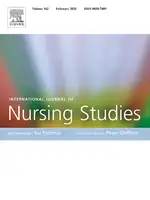Contents:
- Criteria for Evaluating Nursing Journals
- Editorial Standards and Peer Review Process
- The Top 10 Nursing Journals
Criteria for Evaluating Nursing Journals
How do you select the nursing journal that’s right for your research?
The process can be long and stressful, with lots to coordinate. You might have deadlines around major conferences, commercial pressures…and of course, the worry that if you choose the wrong journal, you’ll damage both your own credibility and that of your organisation.
We’ve helped 1000s of researchers, academics and publications managers find the perfect nursing research journal for their work. These are the criteria we use to evaluate them.
Impact Factor and Citation Metrics
Impact factor and related citation metrics are commonly used benchmarks for assessing nursing academic journals – including both high-impact nursing journals and niche nursing publications.
They help quantify a publication’s influence within the academic and clinical community, and most researchers are keen to get published in a journal with as high an impact factor as possible.
But how useful is impact factor, really?
Tracking the impact factor of professional nursing journals can offer researchers a quick snapshot of how widely read – and therefore impactful – a publication may be.
But metrics should be interpreted carefully. While ranking nurse journals by impact factor is a useful starting point, it doesn’t tell the entire story. You should also consider the journal’s scope, editorial board expertise, and the rigour of its peer review process.
These elements can be just as critical to ensuring a journal’s overall quality as numerical indicators like citation counts.
When we support our clients with journal selection and submission, we’ll take account of all these factors.
Beyond Impact Factor: Journal Selection Checklist
Choosing the right journal is about more than impact factor. Use our expert checklist to evaluate visibility, credibility, and alignment — and make sure your research reaches the right audience without risking rejection or low visibility.

Editorial Standards and Peer Review Process
The editorial standards and peer review process of a nursing journal often determine the reliability and credibility of its articles. Leading peer reviewed nursing journals, such as the Journal of Clinical Nursing or Nursing Research, typically employ a thorough vetting system where clinical experts evaluate submissions for methodological soundness, clarity of argument, and novelty.
Journals that uphold strict editorial policies are more likely to publish high-quality, peer reviewed nursing journal articles, making them indispensable resources for nurses, educators, and policymakers alike.
Whether you are preparing a journal submission or simply looking to expand your understanding of nursing research, prioritising nursing journals that are peer reviewed will help ensure you’re engaging with trustworthy and influential content.















.webp)

